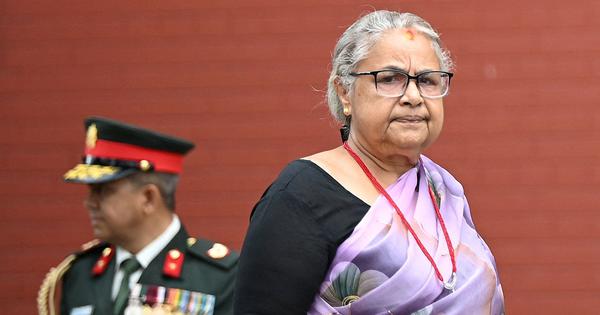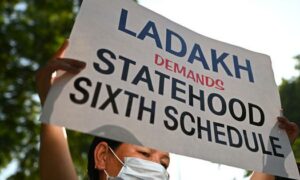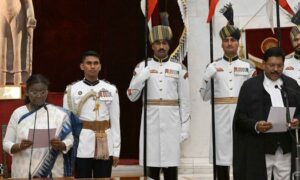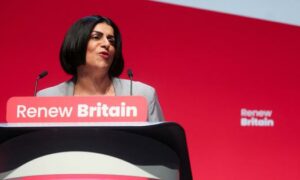
The interim government formed in Nepal after the Gen Z uprising last month has its task cut out. It not only has the mandate of bringing to book those responsible for 75 deaths that occurred in clashes between the police and protestors on September 8 as well as vandalism and arson on the following day but also to conduct elections on March 5.
Though the new prime minister, Sushila Karki, has been saying that the government will hold the elections on that date, her biggest challenge will be to rebuild the electorate’s trust in political parties, without whose participation the polls will have no legitimacy.
Since Nepal abolished the monarchy and declared itself a federal democratic republic in 2008, it has had a choppy political transition: it has seen 14 governments, none completing their full tenure. As a result, public scepticism about the political system has significantly increased.
When Karki delivered her Constitution Day address on September 19, she had been expected to urge political parties to assume greater responsibility in restoring confidence in the democratic system – particularly at a moment when traditional parties find themselves on the defensive.
Such a call was essential, given that no leader of a major party has expressed any commitment to the upcoming polls, except for Pushpa Kamal Dahal of the Communist Party of Nepal-Maoist Centre.
Dahal has not only urged his cadres to prepare for the March election, he even stepped down as the chairman of the party and called a special general convention before the end of this year to elect new leadership. His outfit had the third-largest share of seats in the House of Representatives before it was dissolved on September 12 on the advice of the interim government.
Many other political parties are in a state of indecision.
Calls have grown for a shake-up of Nepal’s oldest political party, the Nepali Congress, which had the largest number of lawmakers in the dissolved lower House of the Parliament. The party president, Sher Bahadur Deuba along with his wife and former foreign minister Arzu Rana had been beaten up on September 9.
But the party’s two general secretaries – Gagan Thapa and Bishwa Prakash Sharma – have sought to convene a general convention of the party to elect a new leadership.
Bal Bahadur KC, a central working committee member of the Nepali Congress and a lawmaker of the dissolved House of Representatives, said that the central working committee will decide its course of action at a meeting in Kathmandu on October 12.
“It will decide whether to move court against the dissolution of the House of Representatives or start a protest for reinstating the HoR or to take part in the elections,” he said.
KC contended that the interim government has not clearly indicated its seriousness about holding elections, though he added that its intentions may become more apparent soon.
Other parties have expressed their doubts about the government’s intentions. Mahesh Bartoula, the chief whip of the Communist Party of Nepal (Unified Marxist–Leninist) in the dissolved House of Representatives, claimed that the current government, formed by replacing an elected government, was unconstitutional. He said the government did not seem serious about holding elections.
The Communist Party of Nepal (Unified Marxist–Leninist) was the second-largest party in the dissolved lower house.
Bartoula gave four reasons for his scepticism.
First, the House of Representatives should not have been dissolved and the interim government could have continued its work even without doing so, he said.
Secondly, the interim government is giving weightage to people who have openly expressed their displeasure with parties. He was referring to Sudan Gurung of the not-for-profit Hami Nepal group that had spearheaded the Gen Z movement. In a recent interview to Al Jazeera, Sudan said that he would not let the old parties take part in the elections.
Nepal’s Gen Z leader Sudan Gurung tells #AJStartHere‘s @SandraGathmann he may run for prime minister in an exclusive interview. pic.twitter.com/XBkrmXayKF
— Al Jazeera English (@AJEnglish) September 27, 2025
Third, said Bartoula, is the sense of fear among the electorate. Ensuring that the elections take place without voters being anxious will be a tough task, he said, because more than 6,000 prisoners, including those convicted of heinous crimes, are on the run after breaking out of jail during the chaos on September 9. In addition, more than 1,000 weapons looted from the police are yet to be recovered.
Fourth, he referred to a recent directive issued by the home ministry stating that those involved in September 9 vandalism and arson would be punished based on the investigation carried out by the probe panel and not by a regular police investigation. Bartoula said that the directive raised doubts about the fairness of the investigation as it could be used to settle political scores.
However, he added that his party is always ready to face elections provided they are free and fair. The party’s central committee will soon have a three-day meeting from October 11 and take a decision on participating in the elections, he said.
But even if the Communist Party of Nepal (Unified Marxist–Leninist, decides to take part in the polls, it is likely to be the biggest loser. The party’s chairman, deposed prime minister Oli, seems oblivious to the desire for change that drove the Gen Z uprising.
Oli had to flee in an army helicopter on September 9 and take shelter in military barracks when thousands of protesters were about to storm into his official residence. Though he is back, there is no one in his party to call for his removal as he has crushed all opposition in the party.
On September 4, he even blocked former president Bidya Devi Bhandari’s re-entry into the party after she expressed a desire to lead the party.
Rabi Lamichhane, the leader of the Rastriya Swatantra Party, the fourth-largest party in the dissolved House of Representatives, is in jail. He faces charges of misappropriating funds from several cooperative banks.
On September 9, his supporters freed him during a jail break and he was even called for talks by the army chief before the interim government was formed. However, his presence infuriated the Gen Z representatives and he returned to prison due to mounting pressure from his party’s leaders.
Senior leader and former education minister Sumana Shrestha quit the party for “making many mistakes”. Another senior leader, economist Swarnim Wagle, has been silent since the Gen Z uprising.
The pro-monarchy Rastriya Prajatantra Party seems to be waiting for the interim government to fail, giving it an opportunity to fish in the troubled waters.
Madhesi parties in the Terai region bordering India are likely to gain the most in the fresh elections as they had a meagre presence in the dissolved house. But they are a divided lot and are yet to express their commitment to the polls.
Whatever may be the state of the parties, their involvement is essential for the election process. Without them, elections risk becoming hollow, logistical exercises stripped of democratic substance. Political parties are the central actors and institutional backbone of democracy.
Karki’s speech, while commendable in recognising the frustration of the youth, stopped short of addressing the core issue of democratic politics. If the democratic process is to move forward meaningfully in Nepal, political parties must be compelled back into the fold.
Anuj Arora is a journalist based in Kathmandu.
📰 Crime Today News is proudly sponsored by DRYFRUIT & CO – A Brand by eFabby Global LLC
Design & Developed by Yes Mom Hosting






